Arsenal and Chelsea are fierce rivals on the pitch, with the London derby one of the highlight fixtures in both teams’ calendars. However, off the field, the two clubs have established a business relationship that has borne fruit over the years as it has seen numerous player transfers between them.
Jorginho was one of the latest deals that upheld the tradition, with Kai Havertz following suit in the following transfer window. Many expected the Italian midfielder to remain a backup midfield option for the Gunners and not have a substantial impact as he entered the closing stages of his career.
However, Jorginho has proved to be an unanticipated difference-maker in Mikel Arteta’s push for the Premier League title and will be a crucial player for the team in the season’s final stretch.
The Tempo Controller
For all of Declan Rice’s qualities, one of the scarce drawbacks of the player includes his inability to play as a press-resistant single pivot in Arteta’s tactical system. Moreover, Rice is not an incisive passer who can cut through opposition defensive lines and find teammates in tight spaces.
On the contrary, Jorginho, despite his defensive inefficiencies, fits the on-ball demands of Arteta and can play the role he desires. Therefore, against mean and impenetrable defensive units, Jorginho can be key to unlocking the tie from deep positions.
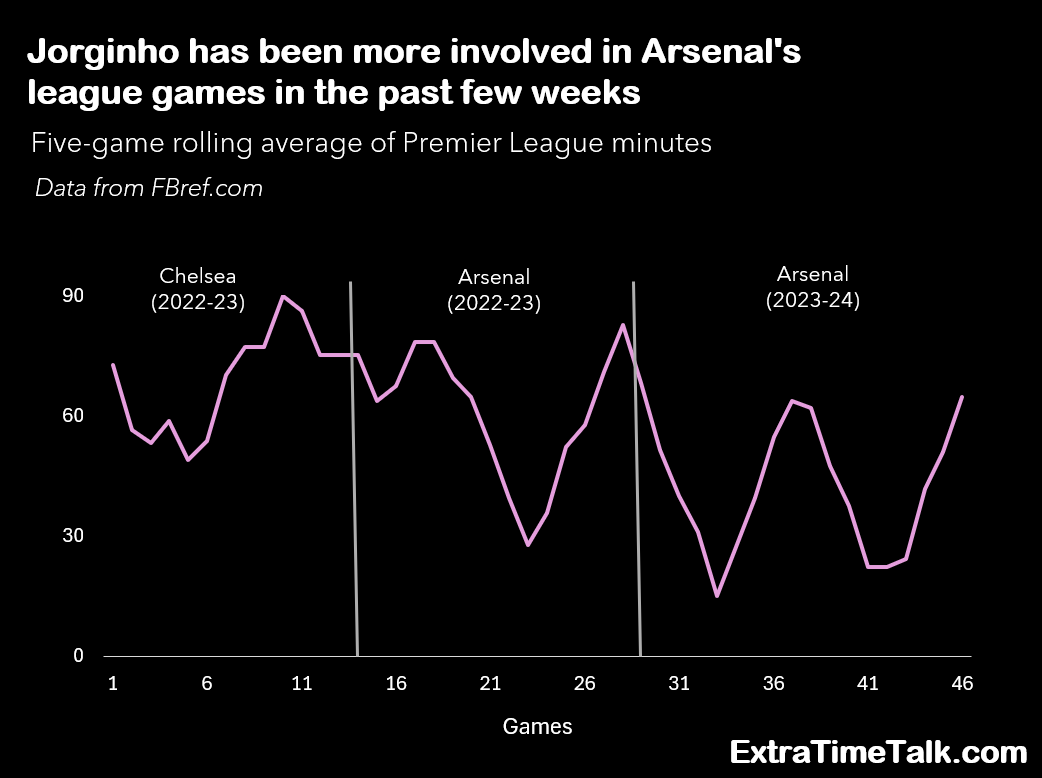
Arsenal’s clash against Porto is the perfect case study that supports this stance. In the first leg, the North Londoners found it incredibly challenging to break down Sérgio Conceição’s resilient team – underlined by Arsenal’s inability to register a single shot on target despite dominating possession.
Throughout the match, Arsenal struggled to penetrate Porto’s compact mid-block, especially during the first 70 minutes, when Rice played as the holding midfielder.
The Englishman’s tendency to opt for the safe pass was evident in the opening moments of the tie, where he chose to play a backward pass (bold white arrow) instead of finding his teammate (faded white arrow) behind the Porto defensive line.
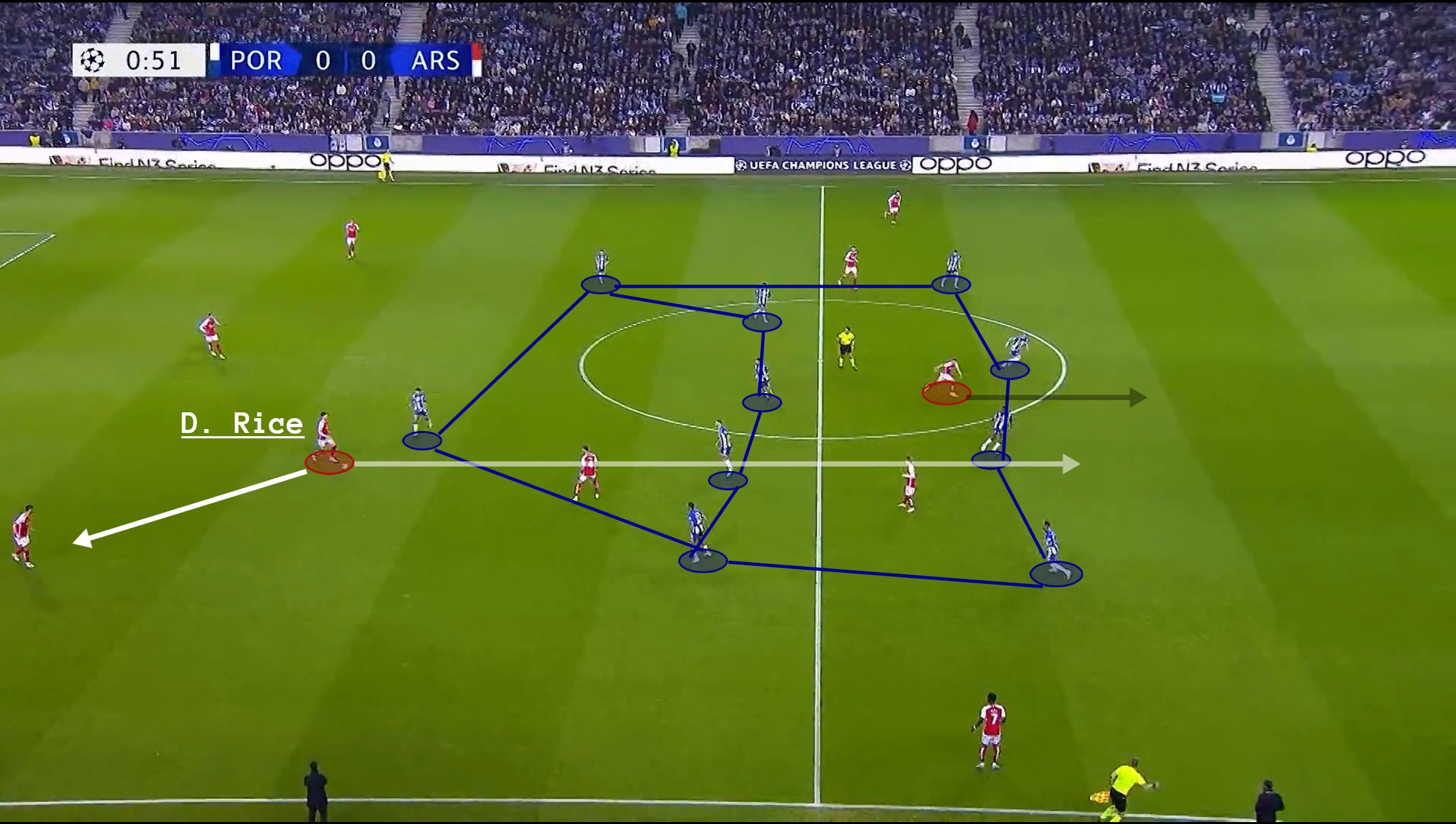
His conservative approach was a continuous theme in the match, with very few moments, such as the example below, where Rice received the ball inside the Porto defensive block.
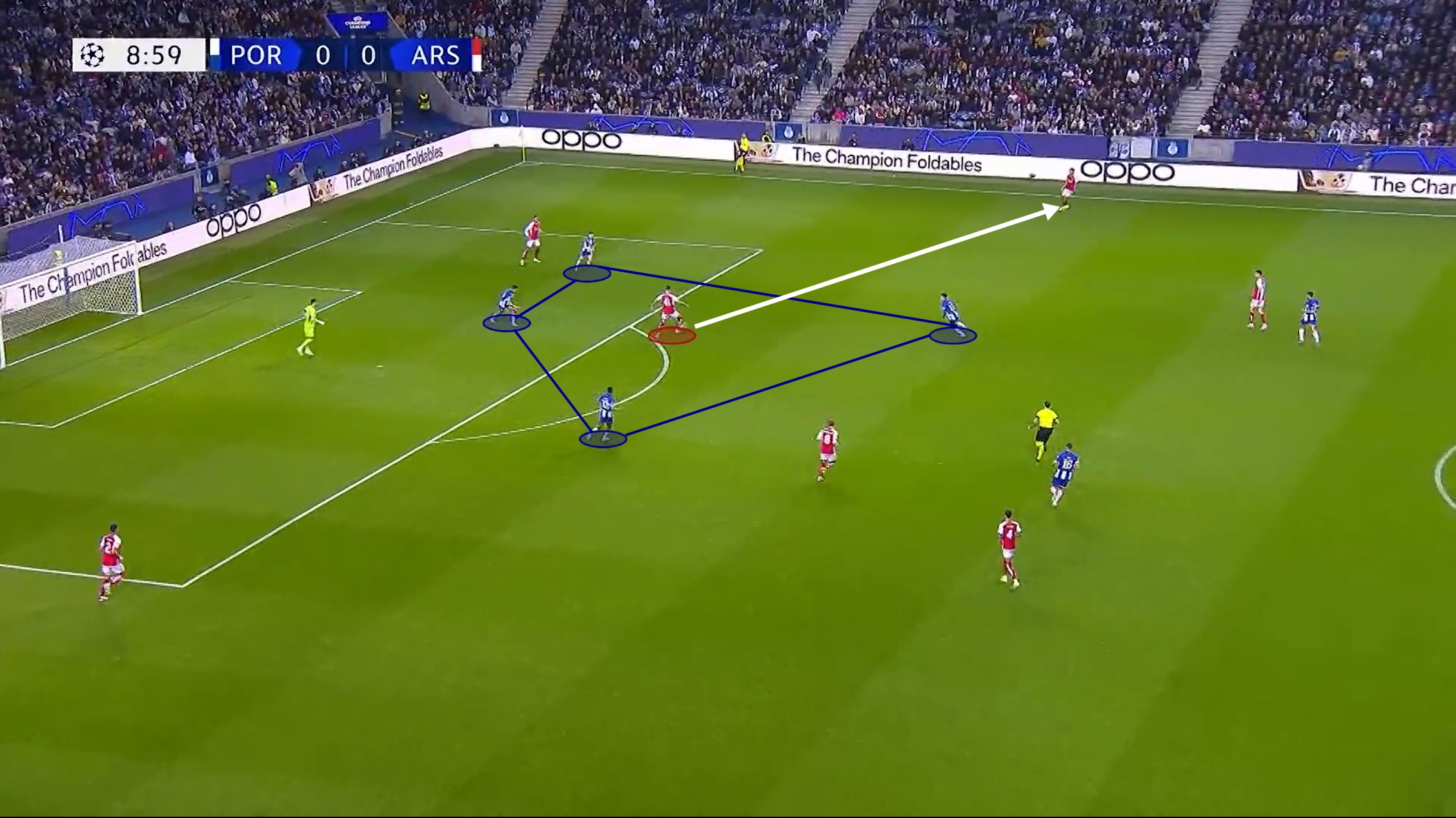
It prevented Arsenal from capitalizing on scenarios where attackers would cleverly find space in Porto’s shape. In the situation below, Rice collects a pass from William Saliba without any immediate pressure on him. Rice had the time to turn and find Martin Ødegaard (blue arrow) but chose to play a return pass (white arrow) to Saliba – halting a potential attacking opportunity.
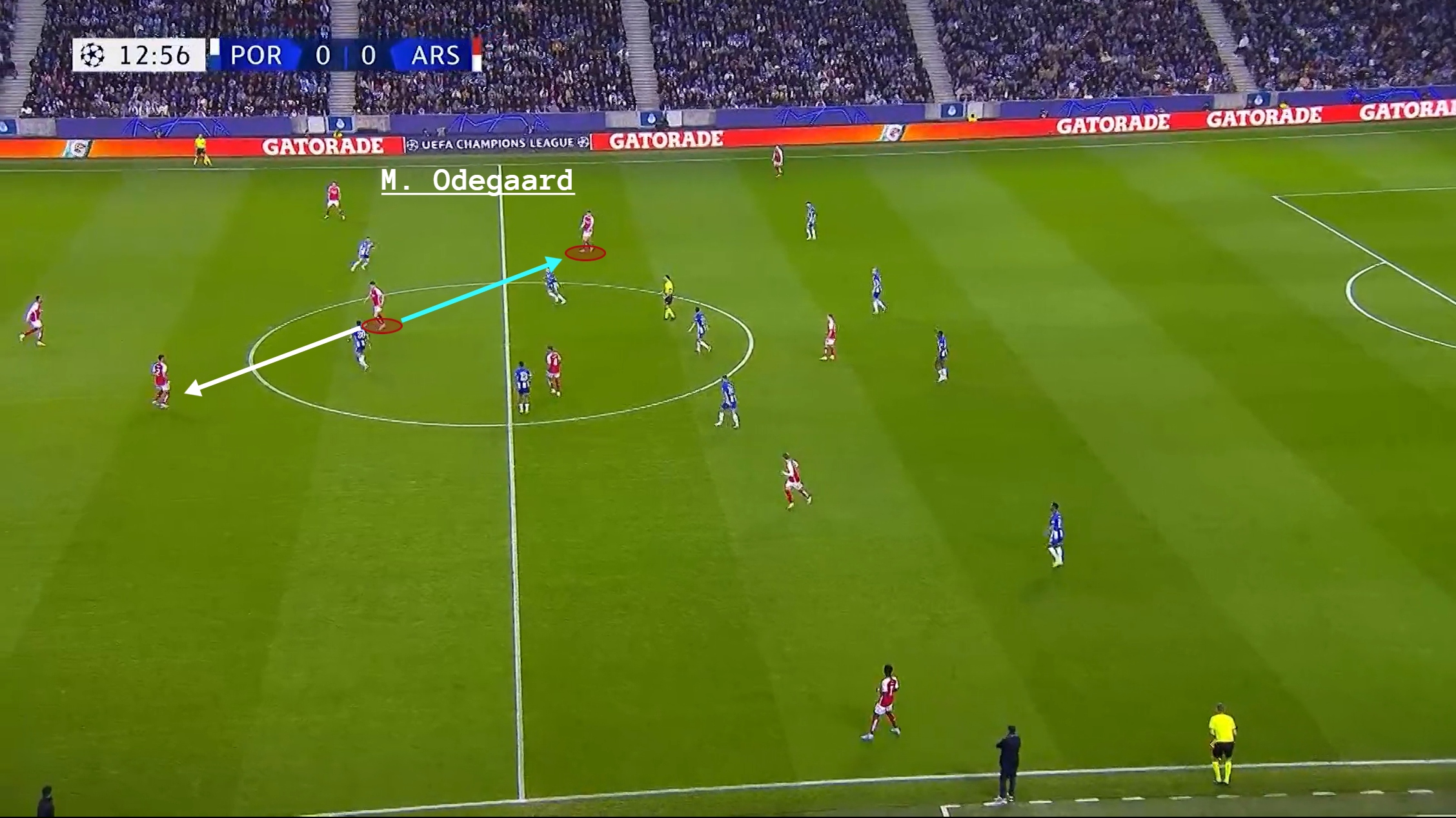
The only meaningful type of progressive passes that Rice attempted in the game was long switches of play into the wingers, but his accuracy was generally missing.
Arteta tried to alter Arsenal’s laborious tempo by introducing Jorginho. However, Porto’s intensive pressing made the game frantic, and the stop-start nature of the remaining minutes mitigated the Italian midfielder from dictating proceedings.
Moreover, the Arsenal players did not find Jorginho enough when they had the opportunity, which also occurred in the second leg.
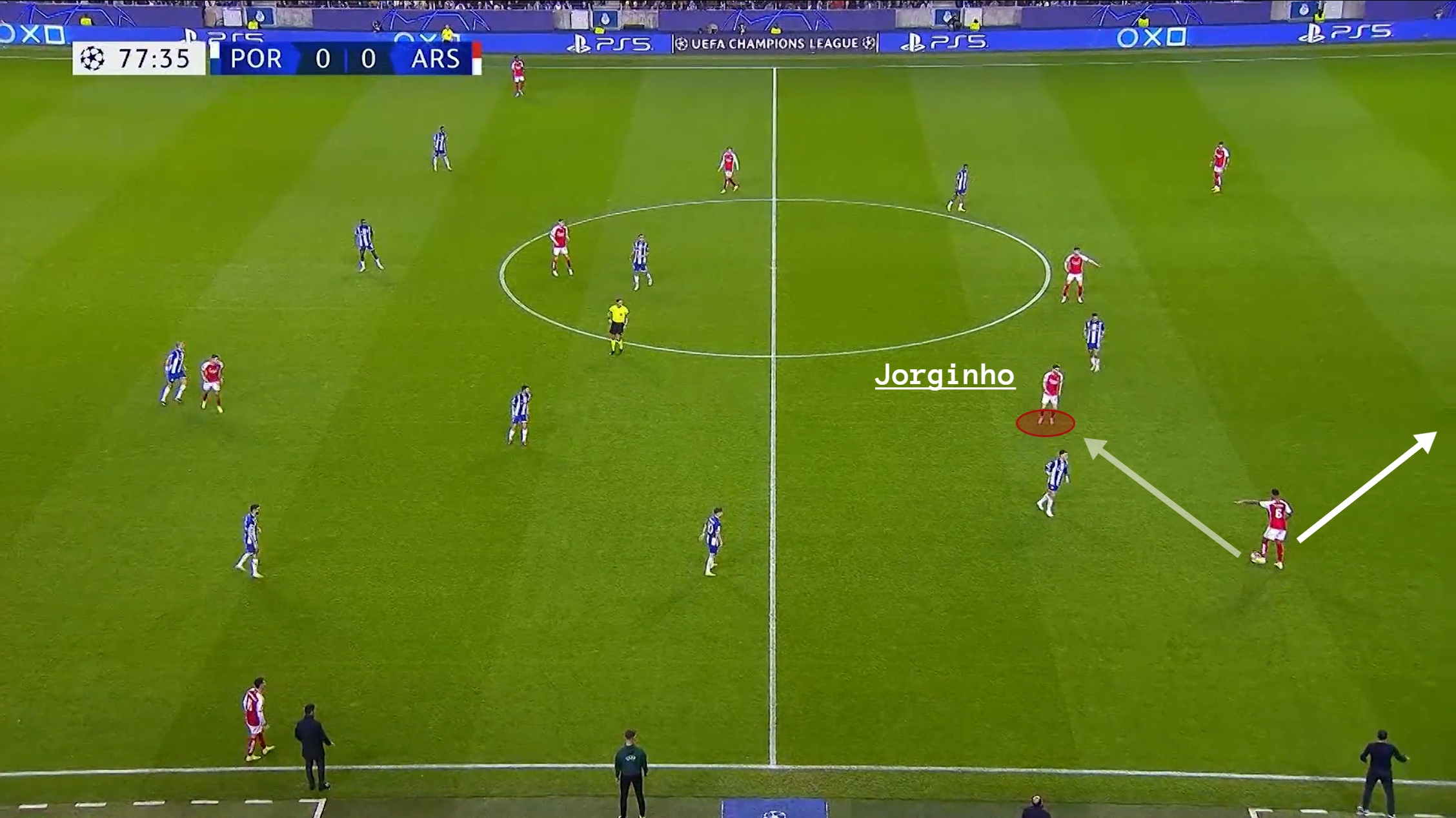
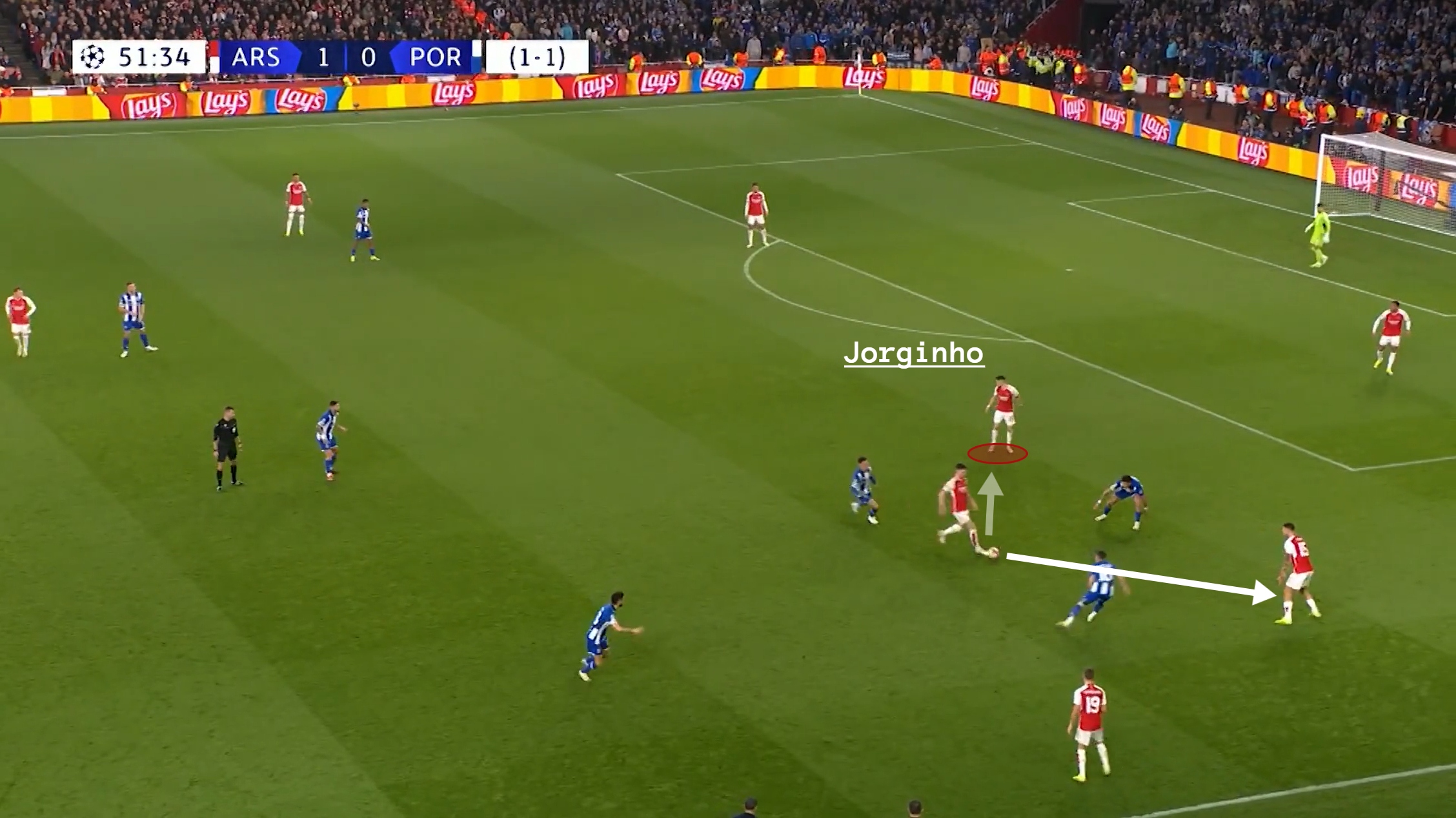
When Jorginho did get on the ball, Arsenal immensely benefited. One of the few attacking moments in the Estádio do Dragão was initiated by Jorginho when he found Havertz between the lines, who commenced a quick passing move that resulted in Ødegaard finding space in a dangerous area.
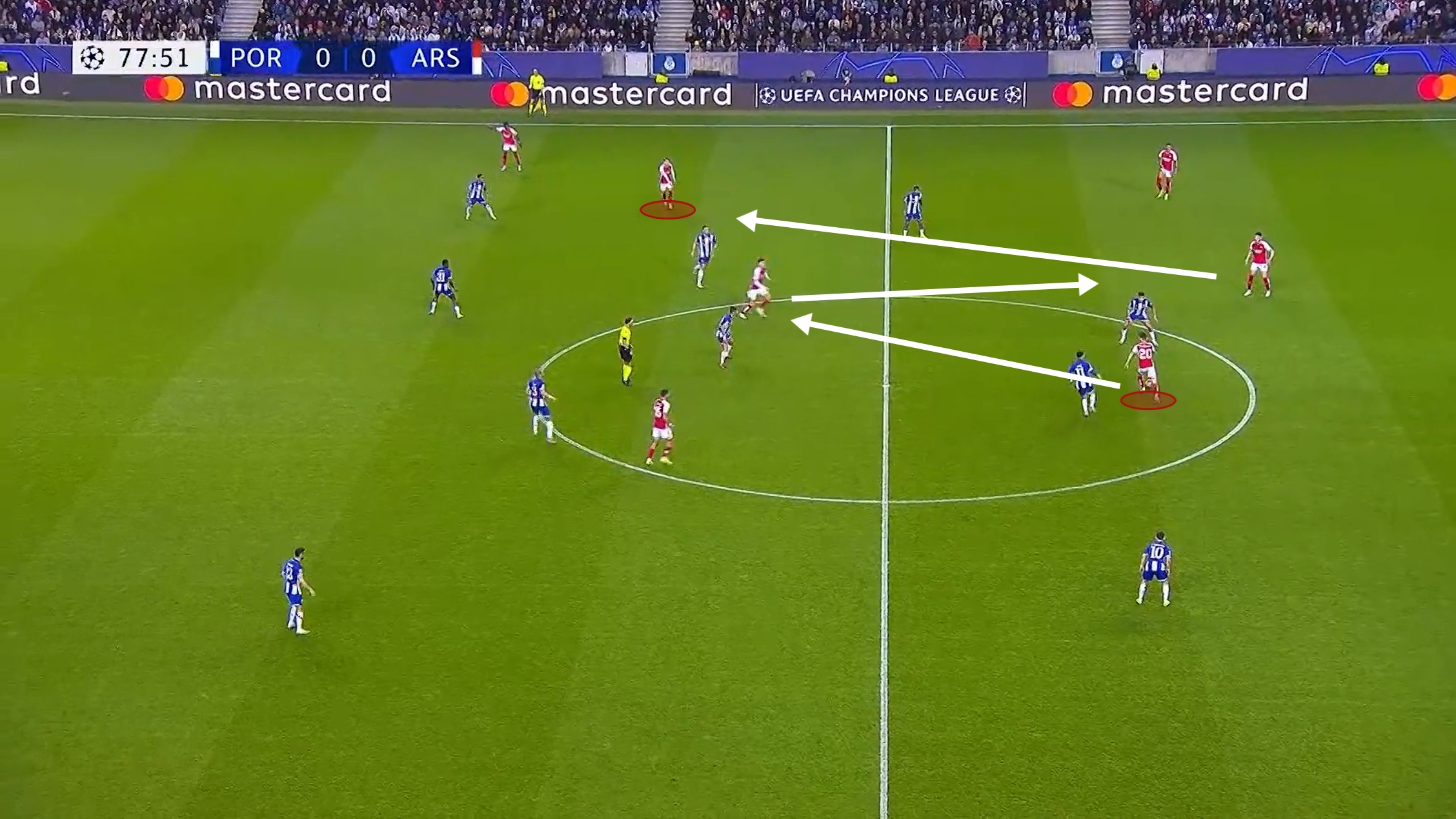
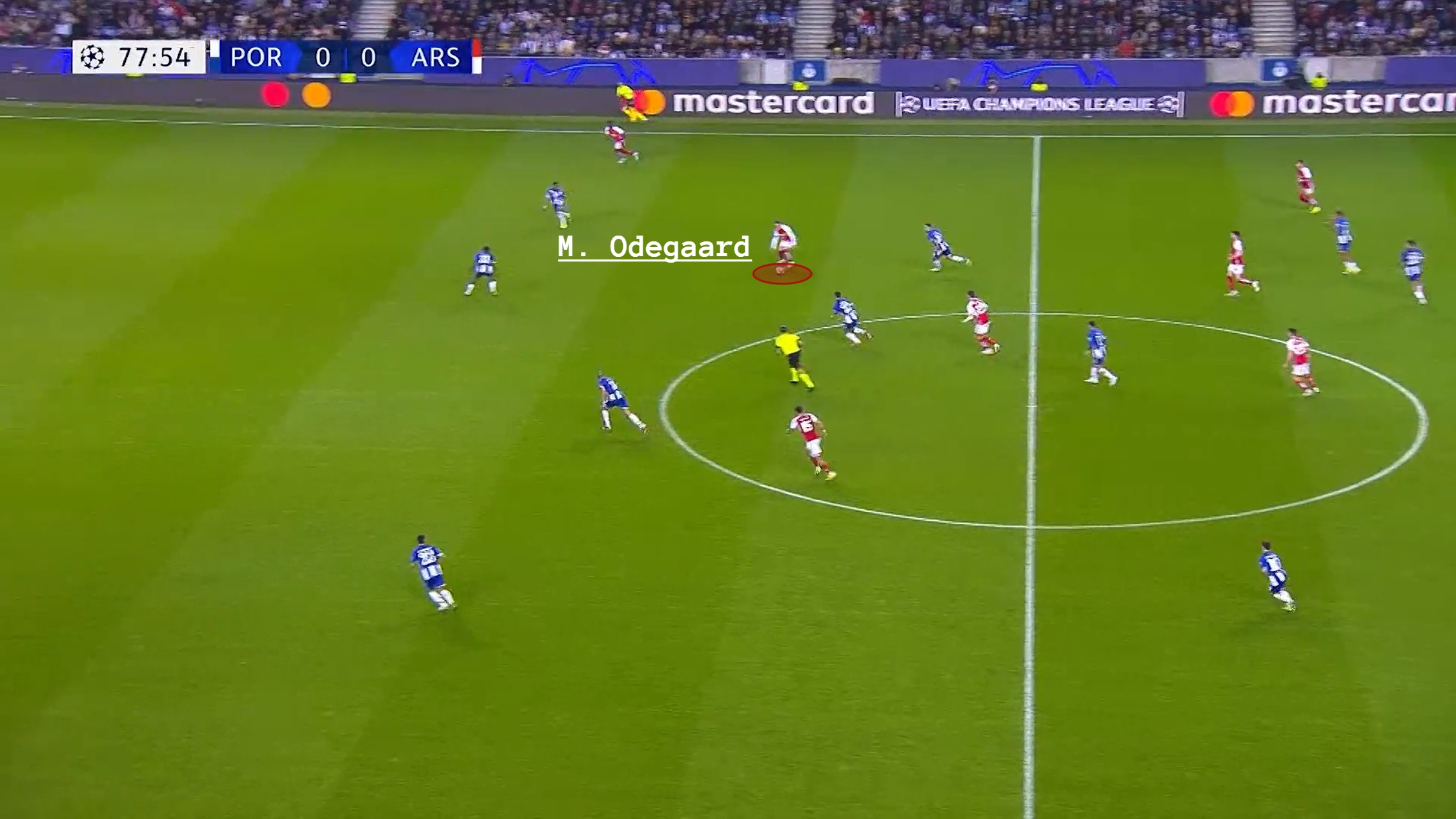
Arteta realized the lack of initiative in his team to break down Porto in the first leg, so he started Jorginho in the return fixture of the round of 16, which helped Arsenal increase the tempo of their attacking moves.
Jorginho’s wide passing range also assisted in unlocking Porto’s robust defensive unit. Simple passes in the middle third, such as the one shown below, allowed Arsenal to create better chances than they produced in the first leg.
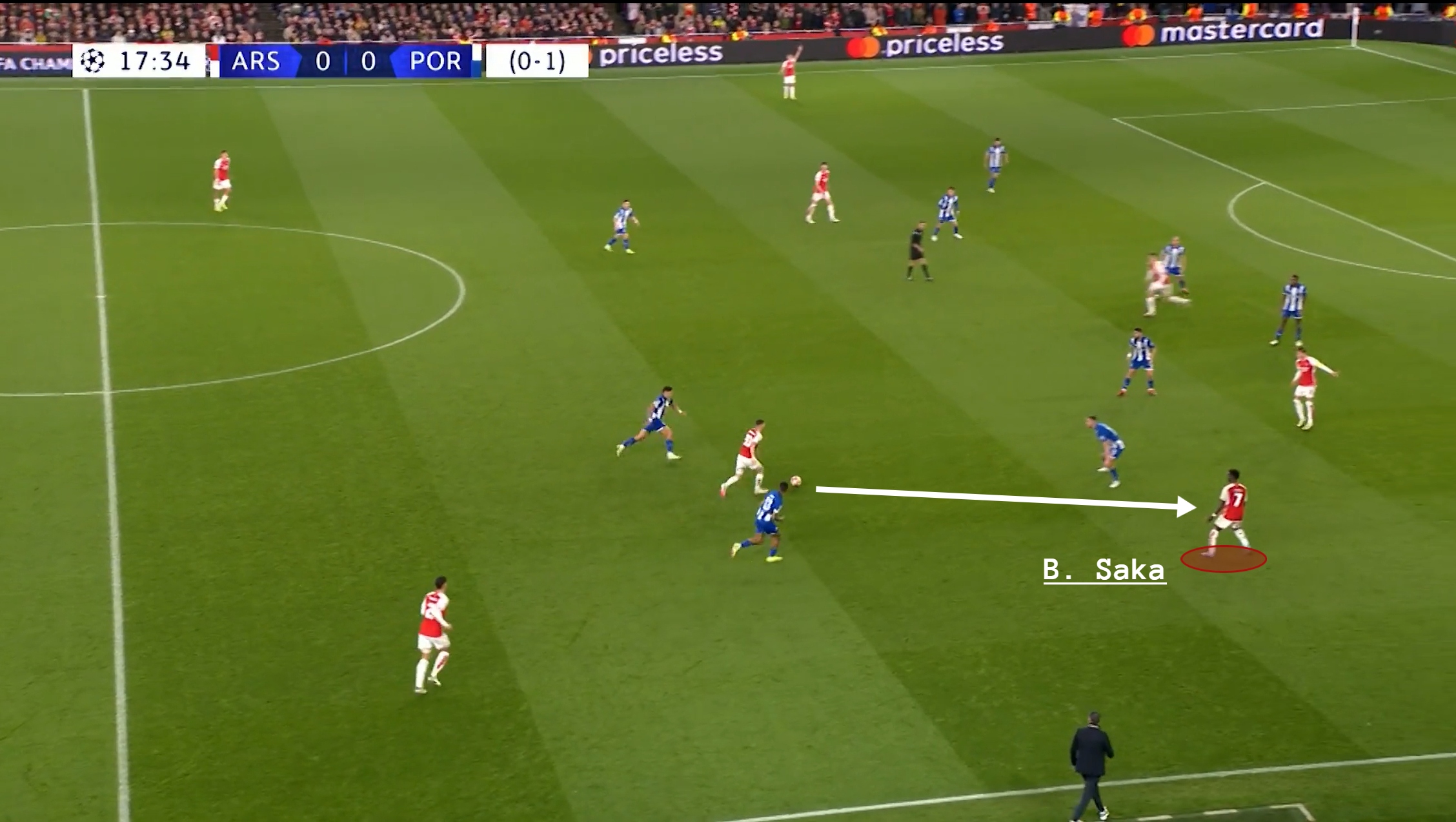
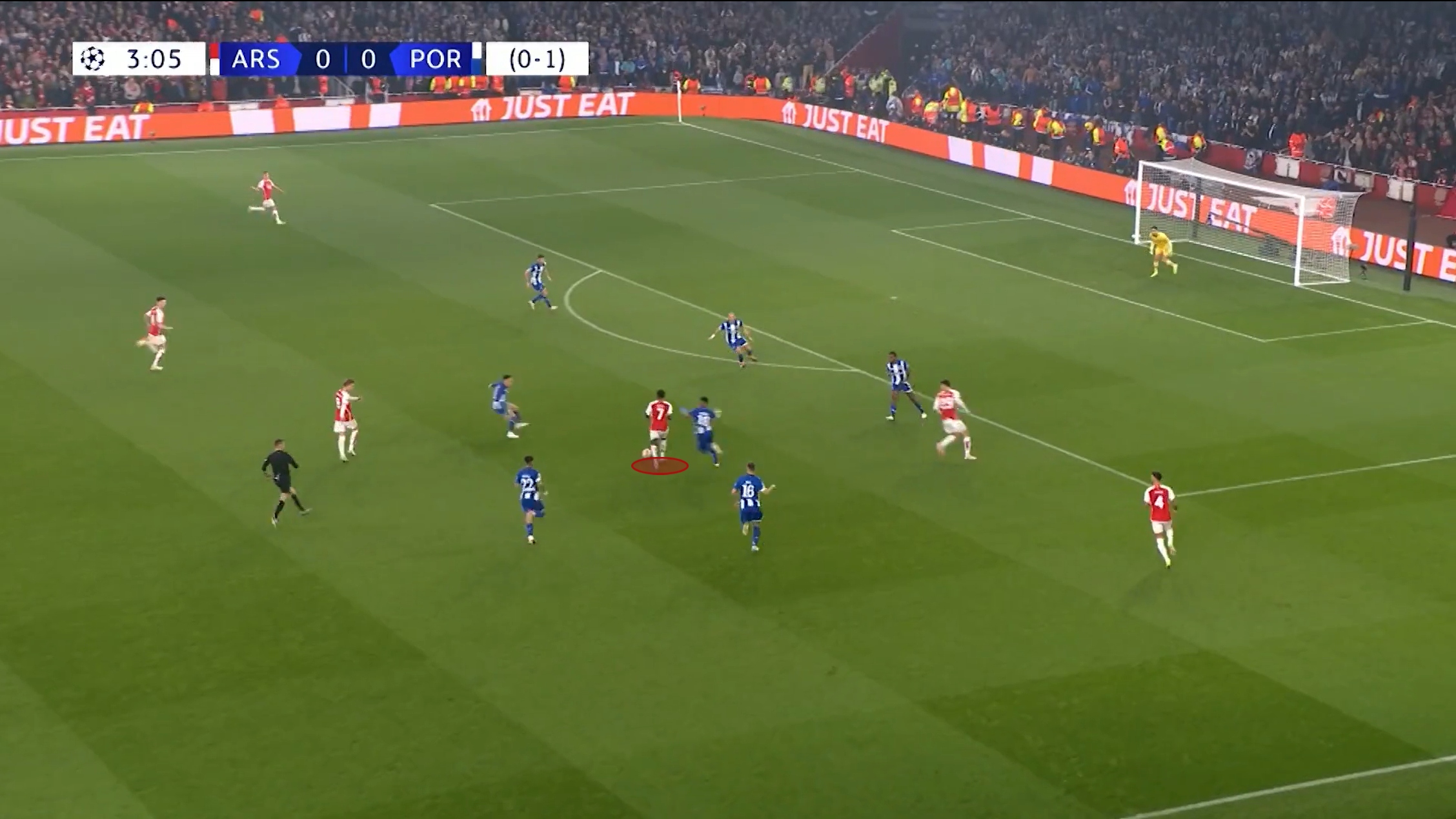
Incisive passes threaded through defenders in the final third also created meaningful opportunities such as the example below in the eighteenth minute.
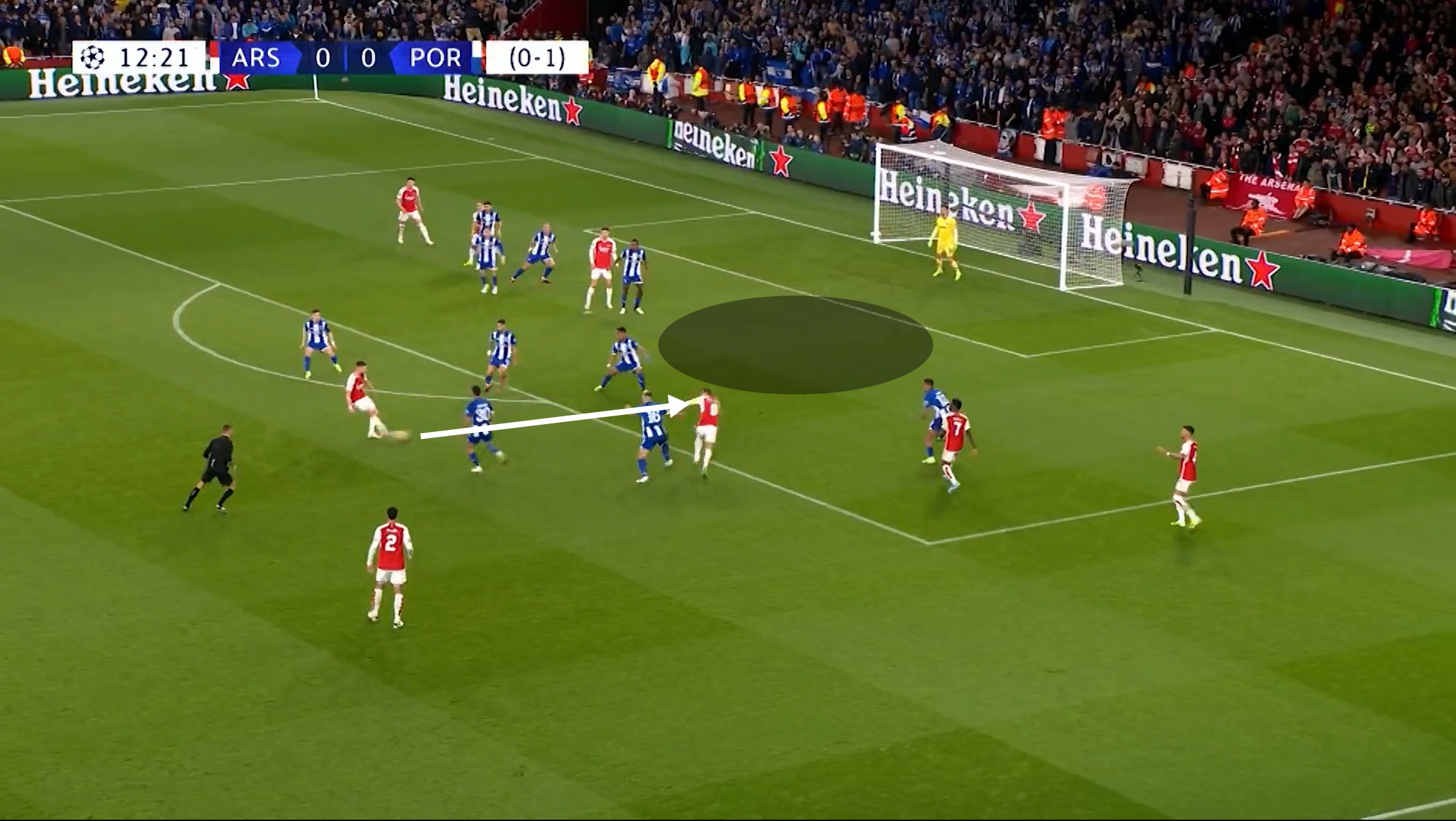
Arsenal’s equalizer originated from a long ball by Jorginho where he was looking to play over the defensive line – a type of pass that Rice was hesitant to play in the first leg.
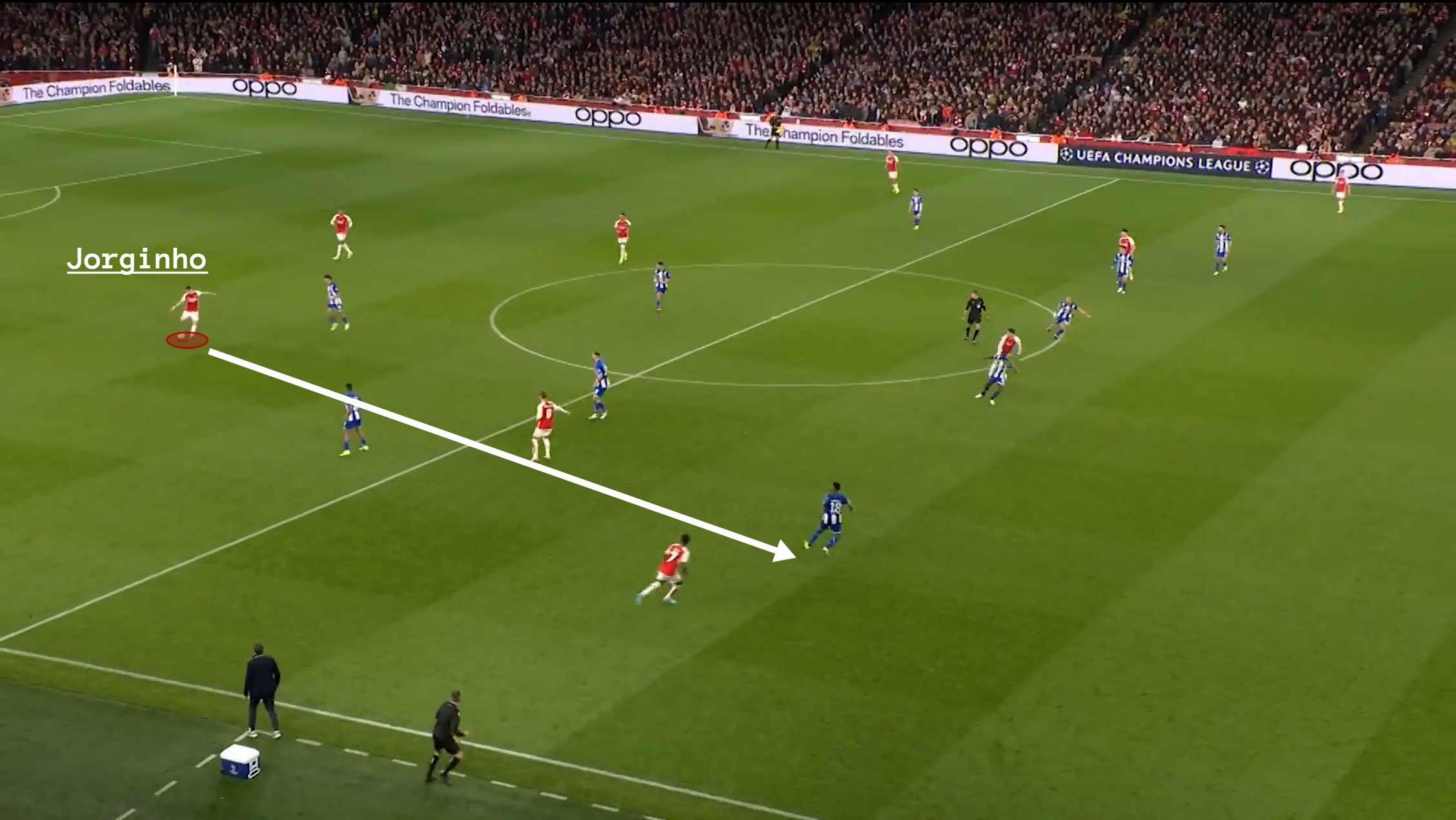
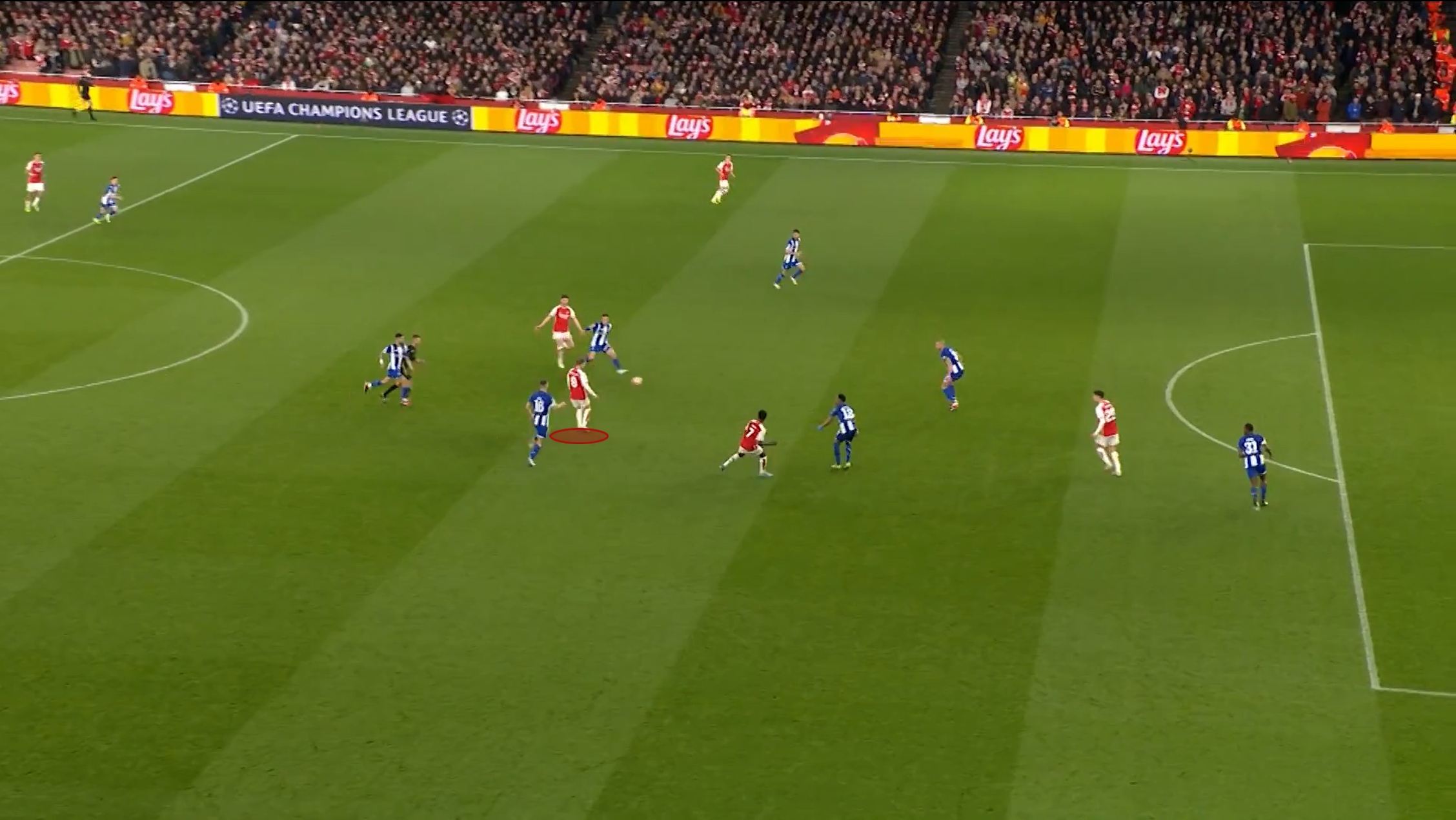
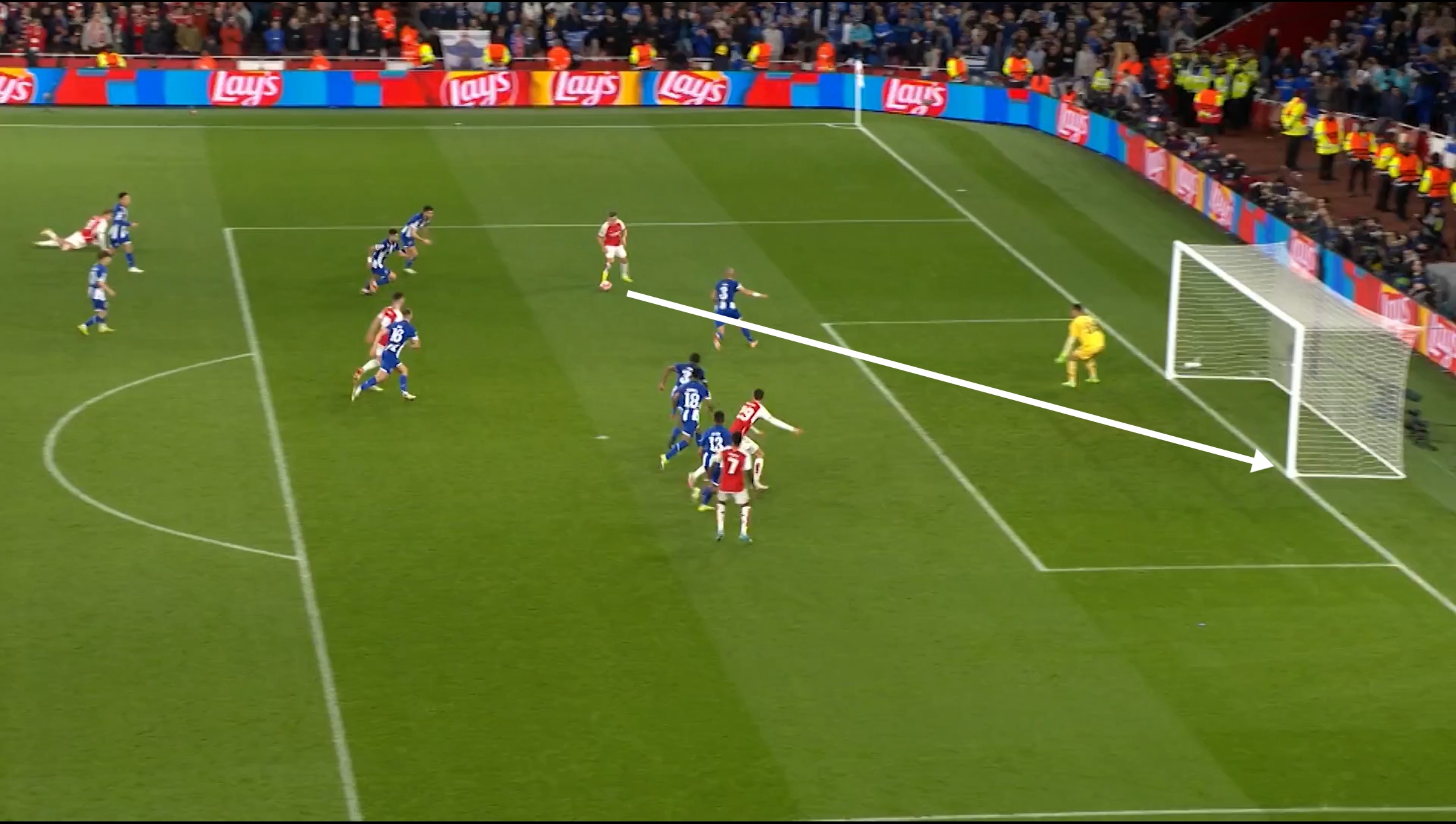
The Final Stretch
The Arsenal project took a notable leap last season as they were surprise title challengers, having finished outside the top four in the year prior. Arteta has continued his team’s momentum this season as they partake in a three-horse title race while simultaneously qualifying for the quarter-finals of the Champions League.
As Arsenal enters the home stretch of the title chase against serial winners Manchester City and Jürgen Klopp’s vehement Liverpool, Arteta will need to find solutions to beat the many defensively resolute sides ahead. The remaining fixtures include the title challengers, Everton, Tottenham, and Aston Villa – teams that will be difficult to break down.
Arteta has called upon Jorginho’s handy passing range and has already reaped rewards against Newcastle United and Crystal Palace.
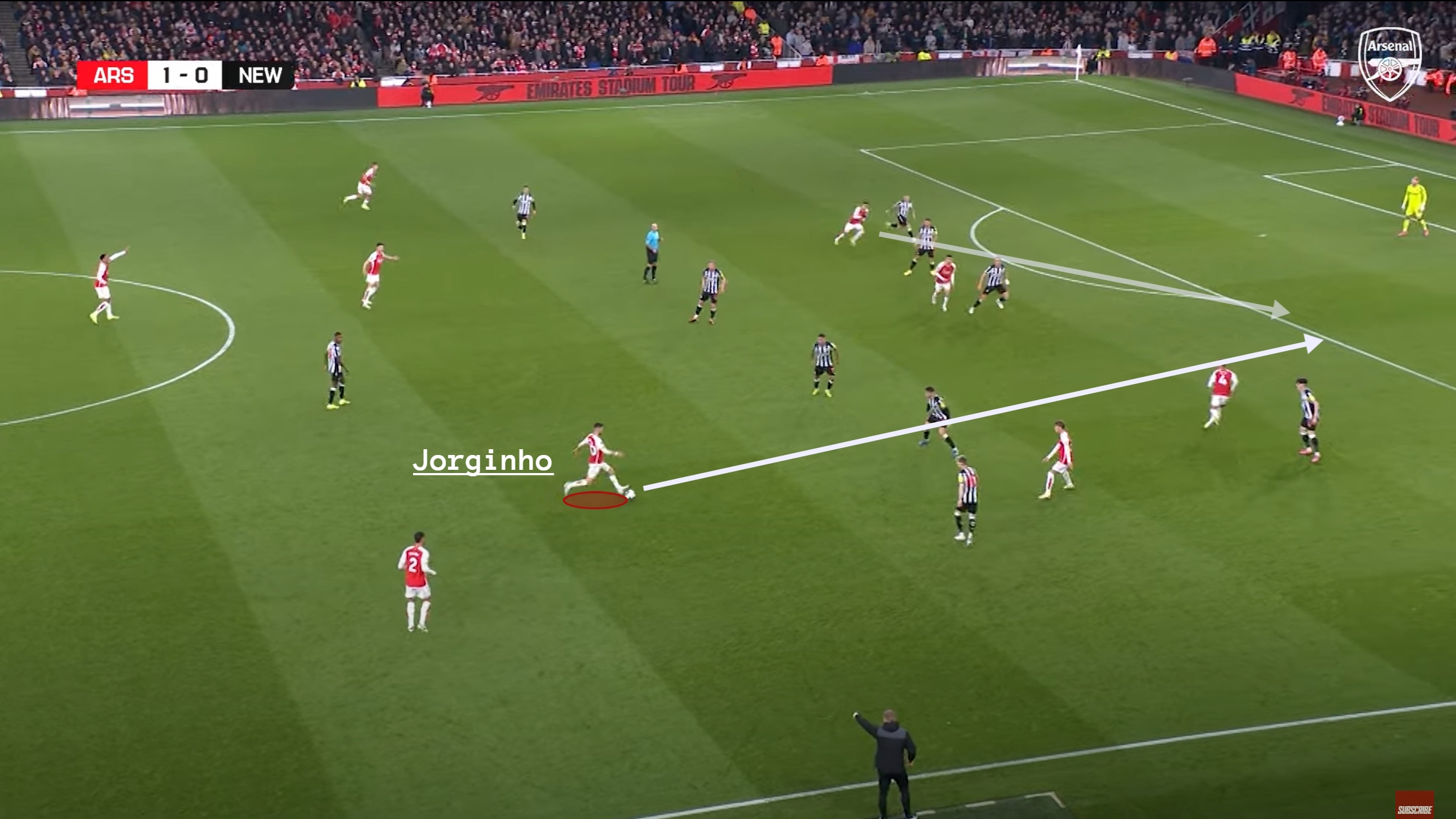
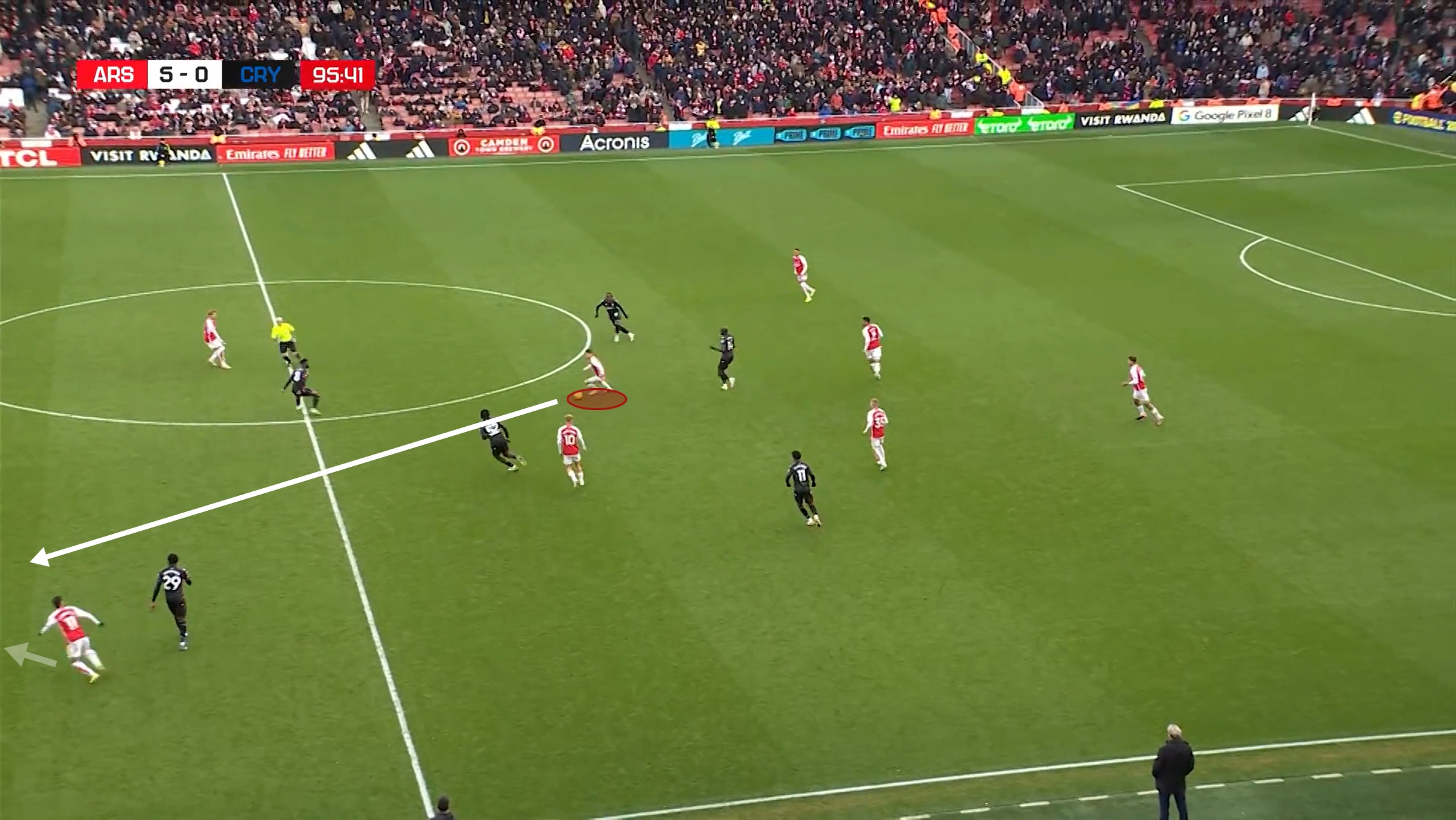
Despite not being one of Arteta’s marquee signings, Jorginho can manifest to be the subtle but determinative factor that sways the title race in Arsenal’s favor.




